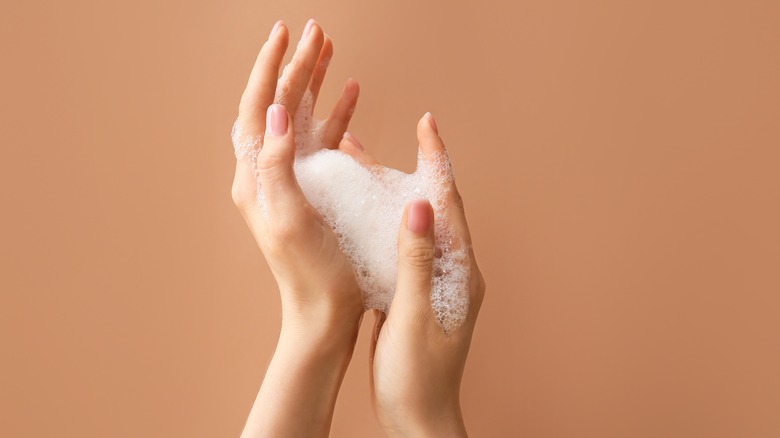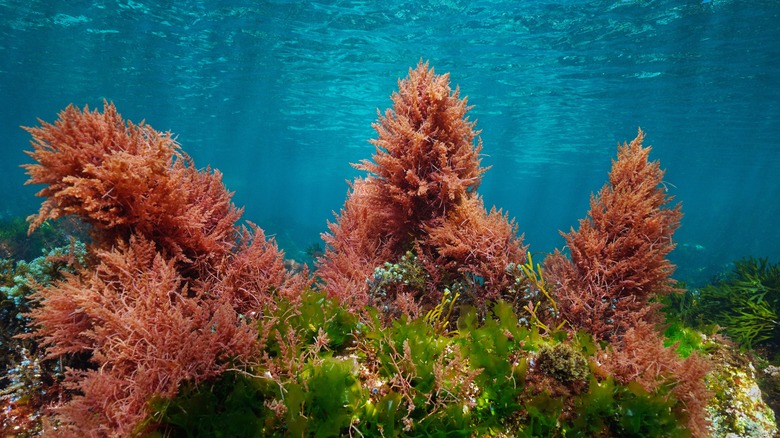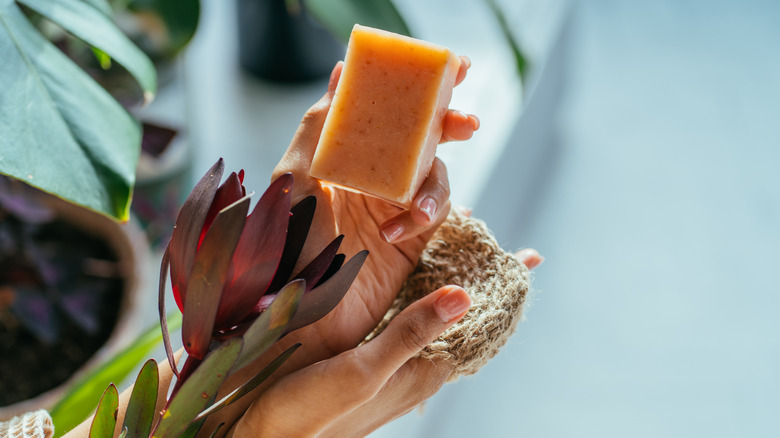Is Anti-Bacterial Soap Bad For The Environment?
Something we've all found new respect for over the last few years — thanks to the COVID-19 pandemic — is the simple act of washing our hands. We were advised to wash our hands as often as we could to mitigate the spread of the disease, per the World Health Organization).
The antibacterial soap market is one that has seen great growth in recent years, with projections for a further boom by the year 2028, according to Global News Wire. Cumulative reasons like an increase in awareness of how some serious illnesses are passed on by germs that enter the body through our mouths while we eat and product innovation have contributed to this spike.
But how much do we really know about the ingredients that make up antibacterial soaps? How much do we know of their harmful effects? Did you know that some of what goes into making these products are actually harmful to us and to our environment?
Antibacterial soaps contain triclosan which is bad for the environment
First patented in 1964, triclosan is a molecule that performs the function of killing off bacteria by inhibiting the organism from producing fatty acids, per Columbia University. Although this may sound harmless and even useful at the outset, triclosan actually does more harm than good with continued use (via Cleveland Clinic), causing issues with hormone function and creating bacterial resistance. When we use antibacterial soaps with the ingredient triclosan, we're essentially sending the remnants down the sewer as waste into streams of water, according to Smithsonian Mag.
Even though 75% of the molecule is removed from water when it is treated, there is still a considerable amount of it that reaches water bodies. A study published in the Elsevier Aquatic Toxicology noted that traces of triclosan found in rivers had a damaging effect on algae — specifically, negatively impacting their photosynthesis process. Triclosan also has the same negative effect on animals when it comes to hormone function, and high doses of the molecule were found in bottlenose dolphins, per a study published in Elsevier Environmental Pollution.
In 2016, the U.S. Food and Drug Administration made a final call on the use of triclosan in antibacterial soaps and ruled that the negative effects of using it far outweighed any benefits. These findings may cause you to wonder if antibacterial clothes are worth your money too.
What is the alternative to antibacterial soaps?
The case for antibacterial soap is, more often than not, a clever marketing gimmick that plays off consumer fears related to disease, according to University of Pennsylvania Medical Center professional Neil Fishman (via Cary Institute of Ecosystem Studies).
Plain soap and water will do just fine when it comes to keeping our hands clean, according to U.S. Food and Drug Administration, without the bad effects. University of San Francisco environmental health professor Barbara Sattler backed this up, telling New Atlas that regular soap and water work just as effectively as antimicrobial soaps. It seems we don't have to think twice about turning to our trusty bar of soap whenever we want to maintain hygiene.
The best part about regular soap? It's conveniently available in most stores and is usually priced lower than antibacterial soaps, per the Minnesota Department of Health. Just make sure you read the labels carefully and give your hands a good, thorough clean.


